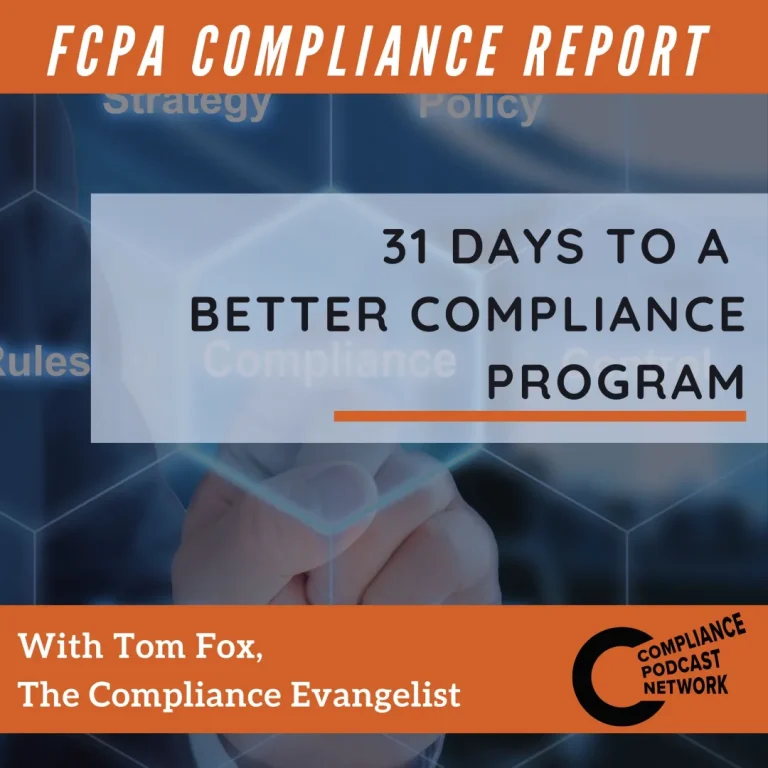The lack of personal consequences for senior executives responsible for corporate malfeasance is explored in this podcast episode. Executives are incentivized to take excessive risks, knowing they won’t have to pay any fines, while shareholders bear the brunt of penalties. Proposed solutions include the concept of “skin in the game,” where executives contribute a portion of their compensation to a pool of money that can be used to pay penalties. Another suggestion involves forfeiting the performance bond of senior management in the case of large fines. A third approach suggests creating a contract that would enforce a reduction in pay for failures of corporate governance. These proposals aim to hold senior executives personally accountable for compliance failures and align executive compensation with compliance objectives. HR professionals play a crucial role in designing and implementing positive incentives to foster a culture of compliance and ethical conduct within organizations.
When it comes to compliance failures, the penalties are usually paid by shareholders, leaving senior executives largely untouched. This lack of personal accountability creates a disconnect between executive actions and the consequences of those actions. It’s high time we bridge this gap and ensure that senior executives are held personally responsible for compliance failures. What are some proposed solutions:
1. “Skin in the Game”. One proposed solution, advocated by William Dudley, former president of the Federal Reserve Bank of New York, suggests that senior management and material risk takers should forfeit their performance bond in the case of large fines. This approach would discipline individual behavior and decision-making, incentivizing individuals to flag issues when problems arise.
2. Automatic Pay Reductions. Another approach, proposed in an article titled “Ties That Bind Codes of Conduct,” suggests automatic reduction of pay for officers, directors, and advisors for failures of corporate governance. Executives would agree to pay back a portion of their gross compensation for a specified period before the beginning of any improprieties, regardless of their knowledge of misdeeds within the company.
Benefits of Accountability for Senior Executives:
1. Aligning Incentives. Corporate leaders cannot afford to turn a blind eye to compliance failures anymore. Holding senior executives accountable ensures that their compensation is directly tied to compliance objectives, aligning incentives and promoting ethical business practices.
2. Addressing Perverse Incentives. Perverse incentives in corporate pay, such as additional compensation based on company performance, can lead to unethical behavior and non-compliance. By implementing accountability measures, we can address these perverse incentives and create a culture of ethical behavior within organizations.
3. Driving Positive Change. Creating positive incentives within organizations is crucial to driving ethical behavior and compliance. HR professionals play a pivotal role in designing and implementing these incentives, ensuring that they are effective in promoting a culture of compliance.
Three key takeaways:
1. Perverse incentives are named that for a reason; they really are bad.
2. How can you create positive incentives in your organization?
3. There is a business response to this legal issue. Employ it.
For more information, check out The Compliance Handbook, 4th edition, available on LexisNexis.com.






